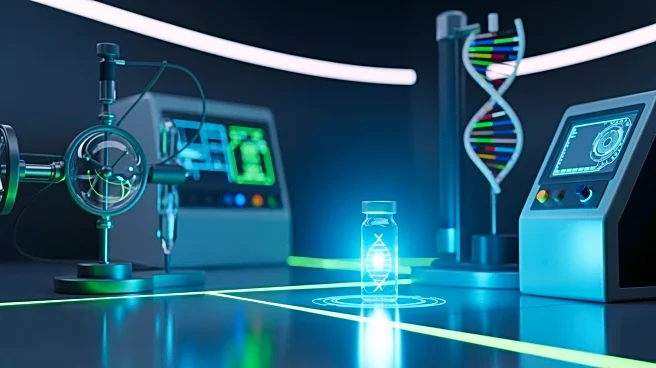What's Happening?
ArcticZymes has unveiled three innovative alternatives for DNA removal in adeno-associated virus (AAV) manufacturing. These methods are designed to improve vector purity and production yield, addressing a critical aspect of gene therapy development. The infographic
provided by ArcticZymes highlights solutions that are efficient, scalable, and compliant with regulatory standards. This development is significant for the bioprocessing industry, as AAV vectors are widely used in gene therapy due to their ability to deliver genetic material into cells without causing disease. Enhancing the purity of these vectors is crucial for ensuring the safety and efficacy of gene therapies.
Why It's Important?
The introduction of new methods for DNA removal in AAV manufacturing is pivotal for the gene therapy sector. AAV vectors are essential tools in delivering therapeutic genes to patients, and their purity directly impacts the success of treatments. By improving vector purity, ArcticZymes' solutions could lead to more effective and safer gene therapies, potentially accelerating the development and approval of new treatments. This advancement may benefit patients with genetic disorders and other conditions treatable by gene therapy, while also supporting the growth of the bioprocessing industry by providing more reliable manufacturing processes.
What's Next?
As ArcticZymes' alternatives gain traction, they may influence industry standards for AAV manufacturing. Companies involved in gene therapy development might adopt these methods to enhance their production processes, potentially leading to collaborations or partnerships aimed at further refining these techniques. Regulatory bodies could also take interest in these advancements, possibly updating guidelines to incorporate new standards for vector purity. The ongoing evolution of gene therapy manufacturing practices will likely continue to shape the landscape of bioprocessing and therapeutic development.
Beyond the Headlines
The focus on improving AAV vector purity highlights the broader ethical and safety considerations in gene therapy. Ensuring high standards in vector production is crucial to prevent unintended consequences in patients, such as immune reactions or off-target effects. This development underscores the importance of rigorous quality control in bioprocessing, which is essential for maintaining public trust in gene therapy technologies. As the field advances, ethical discussions around the implications of gene editing and therapy will remain central to its progress.















